Leading within a Disruptive Environment
The last 18 months have brought nothing but disruption to schools and the students they serve. And although there have been many hardships and catastrophes yet to come, we believe that the crisis strengthened education as a profession and provided all educators, from the classroom to the principal’s office with abundant opportunities for growth.
When we think about leading during a crisis, we typically picture leaders in two opposing vantage points. On one hand, a crisis can paralyze people. The pressure of any conflict can cause a chemical reaction in the brain and bloodstream that produces the flight or fight response in humans. This can cause uncertainty, fear, and even panic. It slows things down to a dark helplessness.
But that response is not inevitable nor is it unavoidable. In Becoming Bulletproof, Evy Poumpuras, describes how she and her United States Secret Service colleagues responded, in real time, to the harrowing attacks on the North and South towers of the World Trade Center. She details how their training kicked in and took over. Trained leaders–those who have had practice in crisis situations or who have gone through serious leadership programs–learn to capitalize on a crisis and it’s possible outcomes. The CDC names several positive reactions dependent on effective management and communication, including a “sense of strength and empowerment,” “new resources and skills,” “renewed sense of community,” and “opportunities for growth.”
| When leading within a disruptive environment, the greatest leaders choose to use the situation as an opportunity for growth for themselves and their team. ~ @TSH302 |
The problem is that although our best leaders choose growth and renewal as outcomes of a crisis, the worst choose to blame and to create distrust and a false sense of safety as they try to “return to normal.” The truth is that crises precipitate change, and every leader’s job is to embrace new developments, innovation, and transformation.
John Hattie Reveals the Learning Loss Fallacy
As educators look to move forward in the wake of a post-vaccinated society, there are several issues to face–from social and emotional trauma to the learning needs of our students. “Learning loss” is definitely the new buzz in education, but let’s take a closer look. We had the distinct pleasure in attending and presenting at this year’s Annual Visible Learning Conference. It is always awesome to watch Dr. Hattie as he presents new data, sometimes shocking his audience with revelations about how students learn and how teachers should prepare their lessons.
John was pleased to note that there are already meta-analyses that apply statistical tests to the effects of learning during the pandemic. In particular focus is the idea that students lost some or much of the learning that would have taken place if they had been in school. From what John showed during his presentation, it’s simply not true. In the aggregate, the greatest losses are in writing, not reading or math. And, some students made gains, especially in math.
Hattie had a great deal to say about why students aren’t showing the losses that everyone expects, including the amount of online math practice that students experienced versus watching teachers model problem solving in the classroom. This is not to say that we don’t have students who missed opportunities to learn. It simply means that we need to diagnose learning loss, not assume it. And it also means that there were a number of practices that improved, some of which improved learning outcomes for students.
We find this data to be encouraging. It demands a level of precision as we approach the school year, more personalized than generalized. We do know that the pandemic adversely impacted low-income areas and communities of color worse than other demographic groups. Coupled with 1.2 million fewer students in the public education system, our strategies below are designed to prioritize learning needs, target key classroom practices, and provide support for all students. We picked 6 practices that we believe all schools should focus upon for growth and renewal in the upcoming months as we return to whatever format of learning we’re expected to implement.
6 Classroom Practices that Need to Change and Why
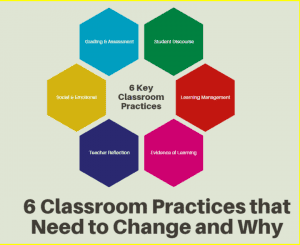
Grading and Assessment Practices Have to Continue to Evolve
Grading and assessment practices, from policy to classroom structures, are maybe the single most controversial topic in education today. Prior to the pandemic, the evolution of grading improvements was moving along at a snail’s pace. Now, more educators are rethinking grading than ever before, and that has to be a focus for all schools. Ultimately, the 100-point scale and averaging are two of the biggest problems with how we calculate grades, but small changes in the way we look at assessment practices can make all the difference in supporting learning.
Two grading and assessment books to consider reading as a school community:
Grading for Equity by Joe Feldman
Assessing with Respect by Starr Sackstein (listen to our podcast interview with Starr here)
Student Discourse Has to to be Top Priority
The more students are able to talk in class and engage in reasoning aloud, the better they perform on content areas assessments. We need our students to get more of the air time in the classroom than have traditionally been granted. The average teacher talks anywhere between 60 and 70 percent of the time allotted for learning in the classroom. It’s also startling to think that during this talk-time, teachers ask between 200 and 300 questions a day, most of which are clerical and clarifying in nature. Student discourse and creative communication have to be a top priority for every teacher and every school leader. We can promote more talk time by instituting specific strategies that help with it and by tracking how often students get to talk and the types of questions with which they engage.
We recommend TeachFX as a classroom talk-time tracking tool.
Check out TeachFX if you don’t know about the tool already. Make sure to tell them that we sent you. (Disclaimer: we don’t make any money from our recommendation of this product; if we did, you would know it).
Learning Management Systems Need to Stay Organized
When we plunged into remote learning, asynchronous time, and the virtual classroom, we saw right away that alignment across systems in the use and structures of a learning management system (LMS) were inconsistent. In some schools, not every teacher was using the available LMS, in some districts the LMS wasn’t consistent from K-12, and some teachers didn’t even have access to use one. We don’t have an LMS recommendation, but we do strongly recommend that schools develop clear expectations for how the LMS is used by every teacher. When students enter the LMS, the setup should be logical and coherent, and this should be true from course-to-course and teacher-to-teacher. Gone are the days when we can do classroom walkthroughs without also doing gradebook and LMS walkthroughs to accompany them, providing teachers with candid and compassionate feedback about the improvements we expect them to make.
Evidence of Learning is the Key to Professional Learning Communities
With assessment practices, including the alignment of course-by-course tests and projects, and a congruous use of a learning management system at the forefront of our thinking this fall, we should be able to use the evidence of our students’ learning to drive conversations in PLCs better than ever before. This means that we can use data to support lesson planning along with an item analysis of the standards that students are meeting and not meeting. We appreciate the model below from Broward County Schools, which encapsulates the elements of effective PLCs.

The best PLC book for school leaders.
Tons of books have been written about PLCs but none are as powerful as Leaders of Learning by Richard DuFour and Robert Marzano. If you don’t have this book on your shelf, buy it today.
Teacher Reflection and Strategy Implementation Can Be Faster
Teacher reflection and strategy implementation can be faster than we thought prior to the pandemic and shouldn’t slow back down as we enter a new era in education. Teachers were forced to try many different ways to connect with students, and the growth that educators experienced during the pandemic was down right impressive. From teachers mastering Flipgrid to the use of Google Classroom, there was a necessity to explore and try new strategies and tools that resulted in positive changes to the way students engaged with content. This freedom to explore and the speed at which educators shared new ideas accelerated teacher development. Through practice and reflection, a learning culture emerged whereby teachers didn’t hesitate to try something new and then reflect versus our old model of reflect-first-then-shift. The reality is that we should be trying new strategies all the time, and we hope that this cultural shift continues in a supportive and constructive environment where risk-taking is rewarded.
Reflective teaching is a key component of a learning culture in schools.
Take a look at David Kolb’s learning cycle, depicted wll by Cambridge Assessment International Education. In the menu bar, notice “Reflective practice in practice” and “Checklist,” both game changers!
Learning Is Social and Emotional
Classrooms are incredibly complex. Embracing the learner’s experience complicates teaching, but it’s a necessary aspect of a quality learning environment and one that the pandemic made abundantly clear. There must be a balance between the curriculum, as to what must get taught, and ensuring that the students actually learned. This requires teachers to be nimble with how to teach but still laser focused on teaching all the key learning targets. It’s unfortunately easy to think that adding social and emotional learning (SEL) into the classroom is daunting and one more thing for teachers to do. However, without the social and emotional side of teaching, learning and retention are less likely to take place. The key to understanding the power of using social and emotional practices in the classroom is in the realization that learning is social and emotional. Without the social aspect of the classroom and the emotional regulation it takes to engage, all the “teaching” in the world won’t stick.
For a great resource on SEL, visit the CASEL site. It provides a litany of resources, like their Guide to Schoolwide Social and Emotional Learning.
The Buy-In Myth that We Find within Our Circle of Nice in Schools
As leaders work to change culture, using any of these 6 practices–from grading to running a proper PLC–as an example, we see that conflict arises. The definition of leadership is influence, the challenge of leadership is conflict, and the result of leadership is change. You can’t have change without some level of conflict, and conflict is not always unhealthy. We close this blog with three major sentiments that prove helpful when trying to make a change within an established culture.
- Patrick Lencioni reminds us that the healthiest organizations are not democratic. The leader sets the vision, communicates the change, and pushes the work forward.
- Trust is often counterintuitive. Leading through relationships doesn’t require a “culture of nice” in schools. Setting clear expectations, holding everyone accountable, and confronting reality are as important for trust as supporting the people where they are. In fact, support without a level of pressure results in the status quo. Just remember that pressure without support is unfair.
- We learned from Douglas Reeves that “buy-in” is a myth. Buy-in occurs after you’ve made a change, not before. It’s unlikely that any of these 6 practices will be agreed upon and implemented by your entire staff without pushback of some kind. You don’t need everyone to believe in the beginning for a deep change to occur over time.
Don’t hesitate to reach out for support in making these 6 changes in your school. We hope that the resources here and the ones to come this month will make a difference for you. Register for our Fireside Chat on this topic by clicking the link to receive your Zoom code.
Stay tuned for more nuggets of wisdom, podcasts, books to read, and the best resources for leading better and growing faster in schools. Follow us at dereka206.sg-host.com to join thousands of leaders who get our content each month. Send this to a friend.
As always, let us know what you think of this with a like, a follow, or a comment. Find us on Twitter, YouTube, iTunes, Facebook, & SoundCloud. And, again, if you want one simple model for leading better and growing faster per month, follow this blog by entering your email at the top right of the screen.
TheSchoolHouse302 is about getting to simple by maximizing effective research-based strategies that empower individuals to lead better and grow faster.
Joe & T.J.




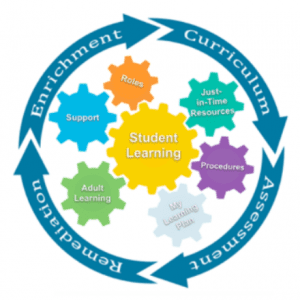

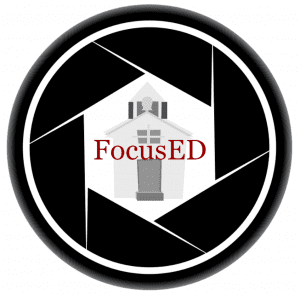
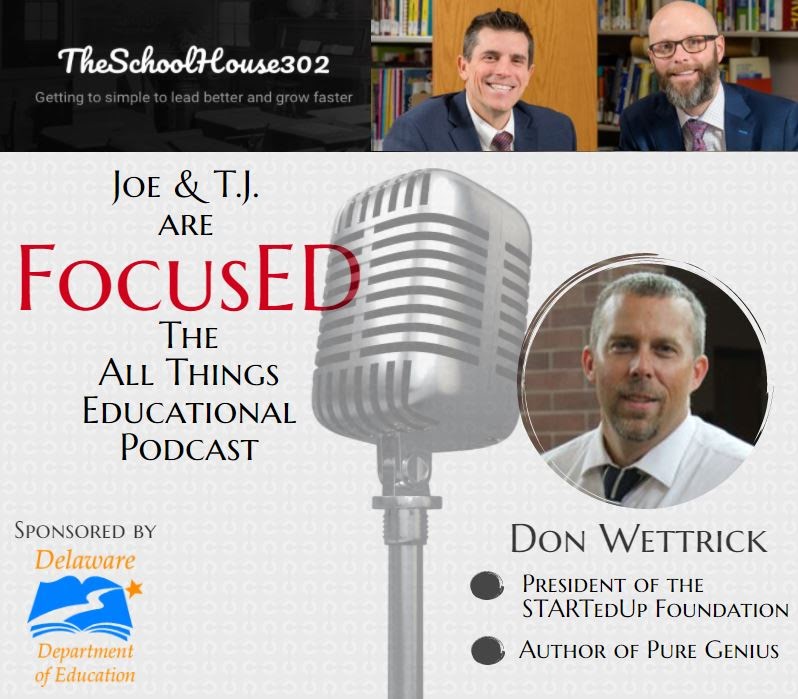

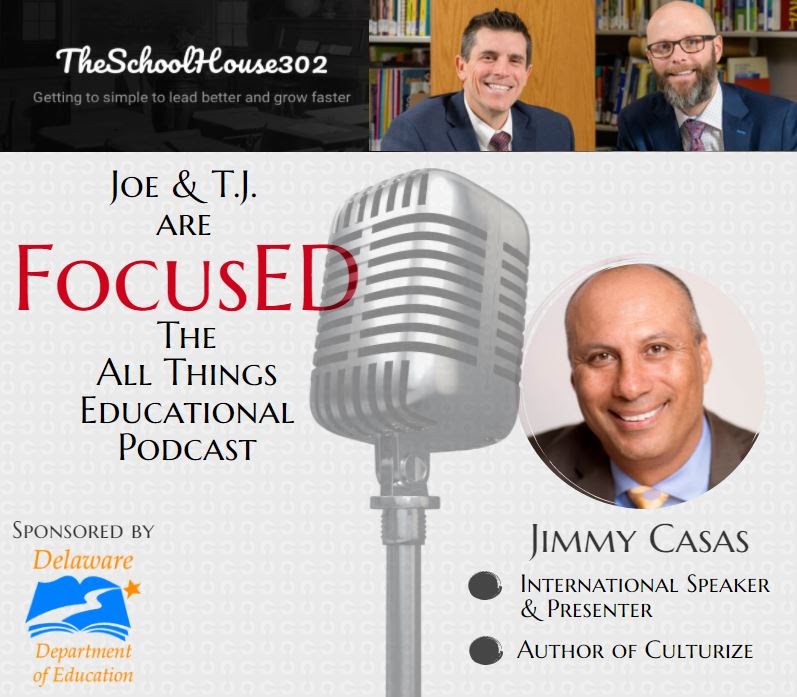
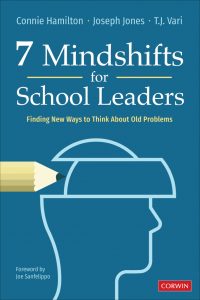 7 Mindshifts for School Leaders: Finding New Ways to Think About Old Problems.
7 Mindshifts for School Leaders: Finding New Ways to Think About Old Problems. 


